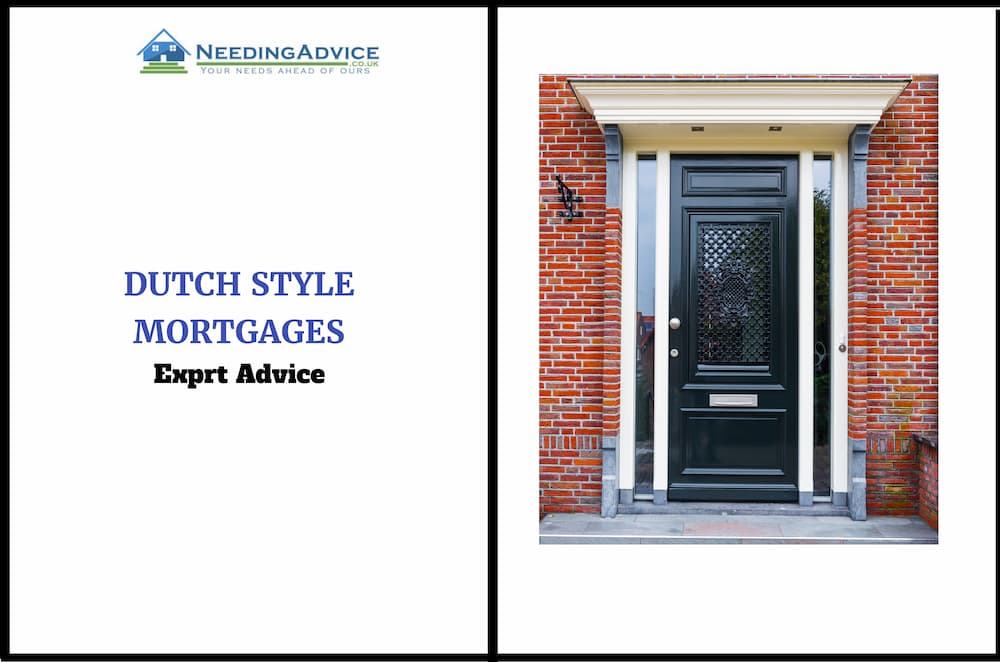Buying a home is one of the biggest financial decisions you’ll make, and choosing the right mortgage is crucial for your financial health. One unique option gaining attention worldwide is the Dutch mortgage model. Known for its flexibility and distinct features, this model offers several benefits that prospective buyers might not initially recognize. Understanding how Dutch mortgages function can provide insights that lead to more informed decisions. In this article, we’ll discuss 10 surprising facts about these mortgages, equipping you with knowledge that can help streamline your home-buying experience.
Dutch Style Mortgages Offer Fixed and Variable Interest Rates
One of the most appealing aspects of Dutch Style Mortgages is the remarkable flexibility they provide when it comes to interest rates. Borrowers have the option to choose between fixed and variable interest rates, tailoring their mortgage based on their financial situation, future plans, and risk tolerance. A fixed-rate mortgage guarantees a consistent interest rate over the life of the loan, providing predictability in monthly payments and shielding borrowers from market fluctuations. In contrast, a variable-rate mortgage often starts with a lower interest rate, but it can change periodically based on market conditions. Additionally, some borrowers might opt for a hybrid approach, utilizing a combination of fixed and variable rates across different portions of their loan. This level of customization can significantly enhance financial comfort and stability.
Dutch Style Mortgages Provide Longer Loan Terms
When it comes to mortgage terms, Dutch Style stand out due to their longer repayment periods. While conventional mortgages typically span 15 to 30 years, Dutch options can extend up to an impressive 40 or even 50 years. This extended timeframe allows homeowners to benefit from lower monthly payments, making homeownership more accessible, especially in markets with high property prices. Although longer terms might result in paying more interest over the life of the loan, the initial financial relief can be invaluable for families managing other expenses, such as education or healthcare costs. Understanding how this feature impacts long-term financial planning is essential for any potential buyer.
Interest-Only Repayment Options Are Available with Dutch Style Mortgages
Another notable feature of Dutch Style is the availability of interest-only repayment options. This arrangement allows borrowers to pay only the interest on their mortgage for a specified period, often ranging from a few years to a decade. During this time, the principal balance remains unchanged, leading to significantly lower monthly payments. This feature can be particularly advantageous for first-time homebuyers or those facing temporary financial constraints, as it eases the initial burden of homeownership. However, it’s crucial to plan for the transition to full principal and interest payments after the interest-only period ends, as this can lead to a noticeable increase in monthly costs. Thus, financial foresight and budgeting become paramount in this scenario.
Dutch Style Mortgages Allow Loan Splitting for Added Flexibility
Borrowers considering Dutch Style benefit from the unique option to split their loans into multiple parts. This innovative approach allows homeowners to divide their mortgage into several segments, each with different interest rate structures (fixed or variable). For example, a borrower might choose to have a portion of their mortgage at a fixed rate to ensure stability, while another segment could be at a variable rate, taking advantage of potentially lower interest costs. This flexibility empowers borrowers to align their mortgage strategy with their financial goals, accommodating changes in income, lifestyle, or market conditions. Understanding how to effectively utilize this feature can lead to significant savings and greater control over one’s financial future.
Tax Benefits Are a Common Feature of Dutch Style Mortgages
One major advantage of choosing a Dutch Style Mortgage is the substantial tax benefits that can accompany it. In the Netherlands, mortgage interest is often tax-deductible, meaning that homeowners can deduct the interest paid on their mortgage from their taxable income. This can significantly reduce the overall cost of the loan, making homeownership more affordable in the long run. Furthermore, the tax benefits can lead to substantial savings, especially in the early years of a mortgage when interest payments are at their highest. For prospective buyers, understanding the tax implications of their mortgage choices is crucial, as it can have a profound impact on their overall financial health and long-term affordability.
Dutch Style Mortgages Are Attractive for First-Time Buyers
First-time homebuyers frequently find Dutch Style particularly appealing due to their extensive benefits and accommodating features. The combination of long repayment terms, interest-only periods, and tax advantages creates an environment conducive to first-time ownership. These features allow new buyers to enter the housing market without feeling overwhelmed by immediate financial pressures. Additionally, the ability to choose flexible repayment options and interest structures can make budgeting more manageable, which is essential for individuals who may not have extensive experience in home financing. As a result, Dutch Style Mortgages can serve as a valuable tool for helping new buyers navigate the complexities of purchasing their first home.
Early Repayment Flexibility Is a Benefit of Dutch Style Mortgages
Unlike many traditional loans, Dutch Style often offer borrowers the flexibility to make early repayments without facing substantial penalties. This feature can be particularly attractive to homeowners who experience financial windfalls, such as bonuses or inheritances, allowing them to pay off their loan faster and save on interest payments. The ability to reduce the principal balance early not only lessens long-term debt but can also provide peace of mind for borrowers seeking to achieve financial independence sooner. However, it’s essential for homeowners to understand the specific terms and conditions associated with early repayment to avoid any unforeseen complications.
Dutch Style Mortgages Have Strict Affordability Checks
Lenders offering Dutch Style implement strict affordability checks to ensure that borrowers do not take on loans they cannot realistically afford. This responsible lending approach involves assessing the borrower’s financial situation, including income, existing debts, and overall creditworthiness. By conducting thorough evaluations, lenders aim to protect both the borrower and themselves from potential financial risks, such as defaults or foreclosures. This emphasis on financial responsibility contributes to the overall stability of the housing market in the Netherlands, making it a safer environment for both lenders and borrowers. Understanding the importance of these checks can help prospective buyers prepare adequately for the application process.
Property Value Affects Dutch Style Mortgages Terms
In some cases, the terms of Dutch Style are directly influenced by the value and energy efficiency of the property being financed. Lenders often assess the market value and energy ratings of homes, with properties boasting higher energy efficiency ratings potentially qualifying for better mortgage terms, such as lower interest rates or reduced fees. This focus on sustainability encourages homeowners to invest in energy-efficient features, ultimately benefiting the environment and promoting responsible homeownership. Prospective buyers should consider the long-term value of investing in energy-efficient properties, as it can lead to substantial savings over the life of the mortgage.
Dutch Style Mortgages Can Be Passed Down to Heirs
A unique feature of Dutch Style is the ability to pass them down to heirs, making these mortgages suitable for multi-generational homeownership. This arrangement allows families to keep valuable properties within the family, preserving wealth across generations. However, it’s essential for heirs to understand the financial implications of inheriting a mortgage, including their responsibilities regarding repayments and potential interest rate changes. This feature can be particularly beneficial in cultures where family properties hold significant sentimental and financial value, ensuring that homes remain within families while also encouraging responsible financial management among heirs.
Conclusion
In summary, Dutch mortgages offer homebuyers a variety of benefits that stand out from traditional options. With flexible interest rates, longer loan terms, unique repayment features, and significant tax advantages, these mortgages cater to a wide range of financial needs and situations. However, as with any mortgage, it’s essential to consider all aspects and seek professional advice before making a final decision. Being well-informed about the intricacies of Dutch Style Mortgages can lead to better financial outcomes and a smoother home-buying experience.
FAQs
Q1. What makes Dutch mortgages different from traditional ones?
Dutch mortgages offer greater flexibility, with options like interest-only periods, longer loan terms, and tax deductibility that are not commonly found in traditional loans.
Q2. Can Dutch mortgages be used outside the Netherlands?
While primarily offered in the Netherlands, some international lenders have adopted similar mortgage models. Availability and specific terms vary depending on local financial laws.
Q3. Can I repay my Dutch mortgage early without penalties?
Yes, many Dutch mortgages allow early repayments with minimal or no penalties, giving you the freedom to reduce your debt faster and save on interest.
Q4. Are Dutch mortgages beneficial for first-time homebuyers?
Yes, with their extended loan terms, interest-only periods, and tax benefits, these mortgages are especially attractive to first-time homebuyers.
Q5. How long can Dutch mortgage terms last?
These mortgages often extend up to 40 or even 50 years, offering lower monthly payments but potentially higher overall interest due to the extended repayment period.
Also read: Red Light Amsterdam Maps: 7 Hidden Gems to Discover After Dark





